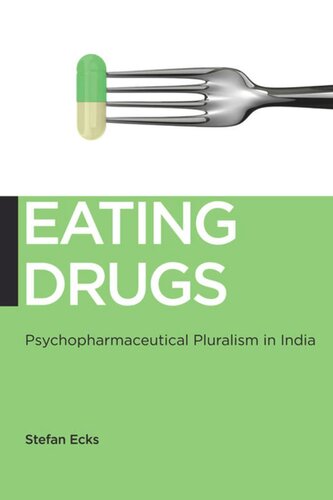

Most ebook files are in PDF format, so you can easily read them using various software such as Foxit Reader or directly on the Google Chrome browser.
Some ebook files are released by publishers in other formats such as .awz, .mobi, .epub, .fb2, etc. You may need to install specific software to read these formats on mobile/PC, such as Calibre.
Please read the tutorial at this link: https://ebookbell.com/faq
We offer FREE conversion to the popular formats you request; however, this may take some time. Therefore, right after payment, please email us, and we will try to provide the service as quickly as possible.
For some exceptional file formats or broken links (if any), please refrain from opening any disputes. Instead, email us first, and we will try to assist within a maximum of 6 hours.
EbookBell Team

4.4
62 reviewsA Hindu monk in Calcutta refuses to take his psychotropic medications. His psychiatrist explains that just as his body needs food, the drugs are nutrition for his starved mind. Does it matter how—or whether—patients understand their prescribed drugs?
Millions of people in India are routinely prescribed mood medications. Pharmaceutical companies give doctors strong incentives to write as many prescriptions as possible, with as little awkward questioning from patients as possible. Without a sustained public debate on psychopharmaceuticals in India, patients remain puzzled by the notion that drugs can cure disturbances of the mind. While biomedical psychopharmaceuticals are perceived with great suspicion, many non-biomedical treatments are embraced.
Stefan Ecks illuminates how biomedical, Ayurvedic, and homeopathic treatments are used in India, and argues that pharmaceutical pluralism changes popular ideas of what drugs do. Based on several years of research on pharmaceutical markets, Ecks shows how doctors employ a wide range of strategies to make patients take the remedies prescribed. Yet while metaphors such as "mind food" may succeed in getting patients to accept the prescriptions, they also obscure a critical awareness of drug effects.
This rare ethnography of pharmaceuticals will be of key interest to those in the anthropology and sociology of medicine, pharmacology, mental health, bioethics, global health, and South Asian studies.